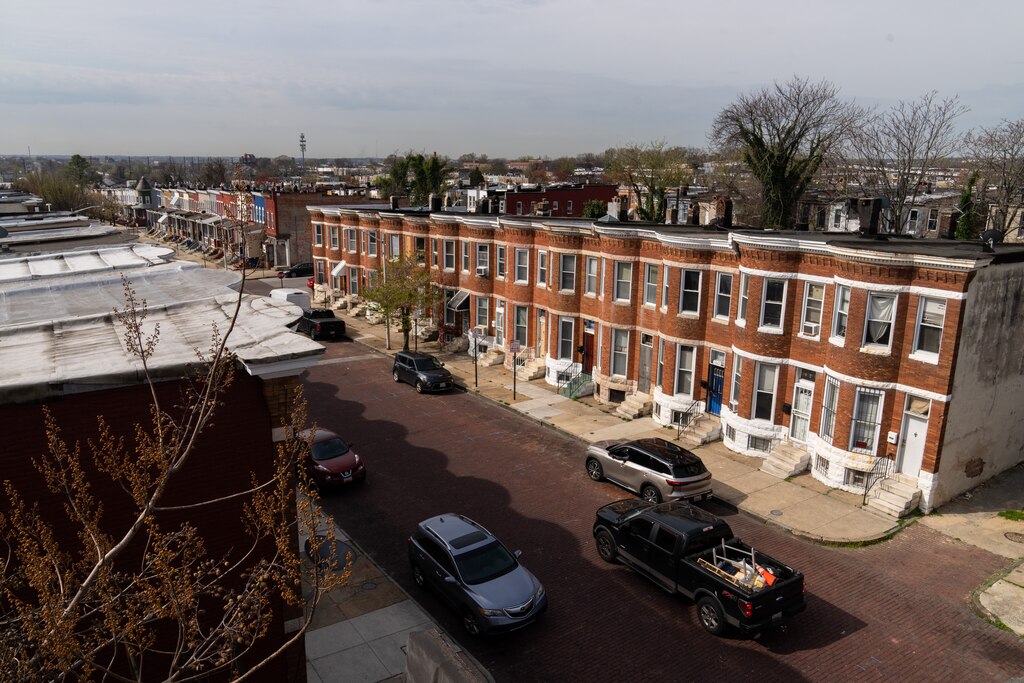CURRENT EDITION: baltimore (none)🔄 Loading BlueConic...EDITION HISTORY: No changes tracked
🔵 BlueConic: ___🔗 Query: ___✏️ Composer: ___
As Baltimore sweeps encampments, some residents feel discarded too
At one Baltimore encampment, leaving can be more challenging than staying.
David Smith wanted to cut Baltimore City Council. He united it instead.
“It was kind of a gift that David Smith and the proponents of the bill gave this city,” said Zac Blanchard, who unseated a Smith-backed candidate in May.
4 things we learned from election night results in Maryland
Being popular doesn’t guarantee victory, and other lessons from Tuesdays election results.
Hey, Baltimore renters: You could get up to $20,000 to buy a home
Two grants are offered: up to $10,000 to purchase a home or up to $20,000 to purchase and renovate a home.
Harborplace developer’s former tenants urge vote against ballot question
The tenants said MCB Real Estate was a subpar landlord that drove down the shopping center’s value.
The Harris and Alsobrooks friendship may matter now more than ever
As the general election draws near, Kamala Harris and Angela Alsobrooks are experiencing a different kind of intimacy as their friendship may matter now more than ever.
Baltimore could begin taxing vacant properties more by July 2026
Owners of vacant properties would eventually pay a tax rate four times that of typical properties.
Tenants ask court if unlicensed landlords, property managers are committing fraud
A win on fraud and deceit would be a "huge win" for tenants, attorneys for the case said.
Maryland’s transportation, housing agencies teaming up to incentivize new homes
The state wants to build fewer parking lots and more mixed-use developments on the 300 acres it owns within a half-mile of transit stations.
Baltimore cancels contract with BOPA after weeks of turmoil
BOPA CEO Rachel Graham said the arts council is still planning to put on a fireworks display for New Year’s Eve and to organize a Martin Luther King Jr. Day parade.
9 Baltimore groups to team up on vacant housing with $4M from JPMorgan Chase
Nine Baltimore nonprofits will receive a cut of a $4 million commitment from JPMorgan Chase.
Confidential 2023 memo outlines how Baltimore could cut ties with BOPA
The detailed plan would redirect all money the city gives the nonprofit to a wing of the mayor’s office and other organizations to put on BOPA’s signature events.
JPMorgan Chase helped revive Detroit. Now they’re betting big on Baltimore.
Those familiar with the bank’s work said JPMorgan Chase can help Baltimore fill its empty storefronts, reduce its vacant housing surplus and bring more good-paying jobs to city residents — all crucial to its financial sustainability.
Gov. Moore wants to eliminate 5,000 vacant Baltimore homes in 5 years
The executive order comes about 10 months after Mayor Brandon Scott and community partners rolled out a comprehensive strategy designed to abate the city’s vacant housing epidemic
A fight over $1.5M could cause Baltimore to break-up with BOPA
BOPA says the money was meant for the organization; the mayor’s office said it was a restricted grant that was always meant for the city.
Chasen Cos. faces foreclosure filing on historic One Calvert Plaza building
Facing lien petitions, contract disputes and a foreclosure, the Baltimore real estate company has reached a tipping point.
Park purchase near Baltimore County Executive Johnny Olszewski Jr.’s home raises questions
Baltimore County is buying land for a waterfront park less than a mile from County Executive Johnny Olszewski Jr.’s Millers Island home. Some have questioned whether the county followed the protocol that it used for other proposed park acquisitions.
Power hungry: The restaurants that fuel Baltimore politics
How campaign finance records reveal the palates of Baltimore’s politicos.
BOPA runs out of money, calls ‘emergency’ board meeting
Troubled Artscape host plans to vote on ‘personnel and business location’ Thursday
Nearly two-thirds of Maryland 18-year-olds are registered to cast a crucial vote
The rate of 18-year-old voters registered in Maryland exceeds that of neighboring Pennsylvania, according to the study, and Ohio, Georgia and Arizona.










